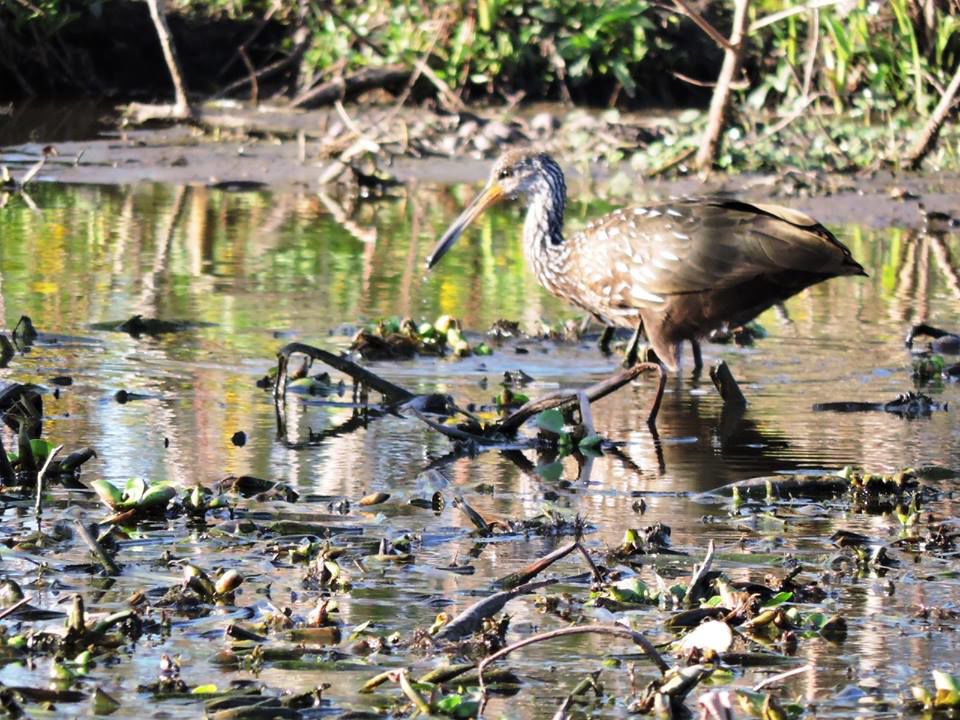
New bird species may be a big boost locally
March 14, 2018A lost Irisher claims St. Patrick’s Day.
March 14, 2018Louisiana is one of the only states in the nation where you can be traveling by boat on public, navigable waterways, and suddenly with no warning find that you are not.
As a result, families out for a day of fun have been subject to armed challenges from guards hired by big landowners, told to leave the unmarked, seemingly open water. The problem has become so bad that major fishing competitions are avoiding the state, and without change things could get worse.
Change is a step closer with the introduction of a bill in the just-commenced 2018 regular legislative session, HB 391, introduced by Rep. Ken Pearson R-Slidell.
While the issue has been complex, mired in centuries of Napoleonic law considerations as well as court precedents that conflict, Pearson’s solution is rather simply worded.
“The running waters of the state and the wild aquatic life inhabiting those waters are and remain the property of the state and as such, title and ownership of these natural resources remain unchanged whether the running waters flow over public or private water bottoms,” the proposed law reads. “The running waters of the state and the wild aquatic life inhabiting those waters are therefore subject to the supervision and control of the state through the applicable departments, agencies, and commissions … No person may restrict or prohibit, pursuant to the authority of (civil law) the public navigation of running waters which are navigable by a motorboat required to be registered or numbered pursuant to the laws of this state or the United States. However, the provisions of this Subsection shall not apply to running waters passing over privately owned water bottoms where navigation has been prevented or impeded by an obstacle constructed by a private landowner prior to March 2, 2018.”
Running waters is defined in the law to include “waters passing over any privately owned water bottom which has a direct natural or man-made inlet or outlet to a state-owned water bottom that is subject to the ebb and flow of the tide of the Gulf of Mexico and the tidally influenced arms and tributaries passing through the coastal areas of this state.”
The law goes on to say that there is no change in ownership of water bottoms or in banks, or in such a way as to cause damage. Additionally, owners are relieved from unreasonable liability.
This law makes sense to us. There is no reason we can think of why open water should be claimed as private, when nothing exists to prevent access.
There are cases where privatization of water has been an issue and still shall be, such as the long-disputed issue of waters in Gheens owned by Golden Ranch. But the Gheens case involves a different type of property, a limited access canal. This bill addresses instead open waters, and therein lies a huge distinction.
The local legislative delegation has expressed interest in finding a way to fix this problem but so far they have not come up with answers. This causes us to question who they identify with and have been talking to. Are they being influenced by large landowners? Are some of them large landowners themselves?
We would like to think that’s not the case.
But we do see quite clearly that Rep. Pearson has been influenced by the concerns of folks who want to get out on a boat and fish, without being treated by criminals.
The problem with this on-going conflict is that eventually it will end up in an act of violence, and we don’t wish to see that happen.
We do believe in property rights. But claiming those rights on open water that should belong to everyone isn’t the way to go about it.
Gone are the days of grants from a king or for that matter from a state in Louisiana.
When the decision of whether a property is public or private is left solely to what maps were considered centuries ago, involving water that is constantly claiming more land today, the decision must be considered lacking.
It is our hope that the entire coastal delegation get behind this bill, recognizing its potential not only for aiding anglers, but aiding efforts to restore the coast.
This law has the potential to stop the morphing of Louisiana from Sportsman’s Paradise to Sportsman’s Nightmare.
Its passage, in our opinion, cannot come soon enough.







